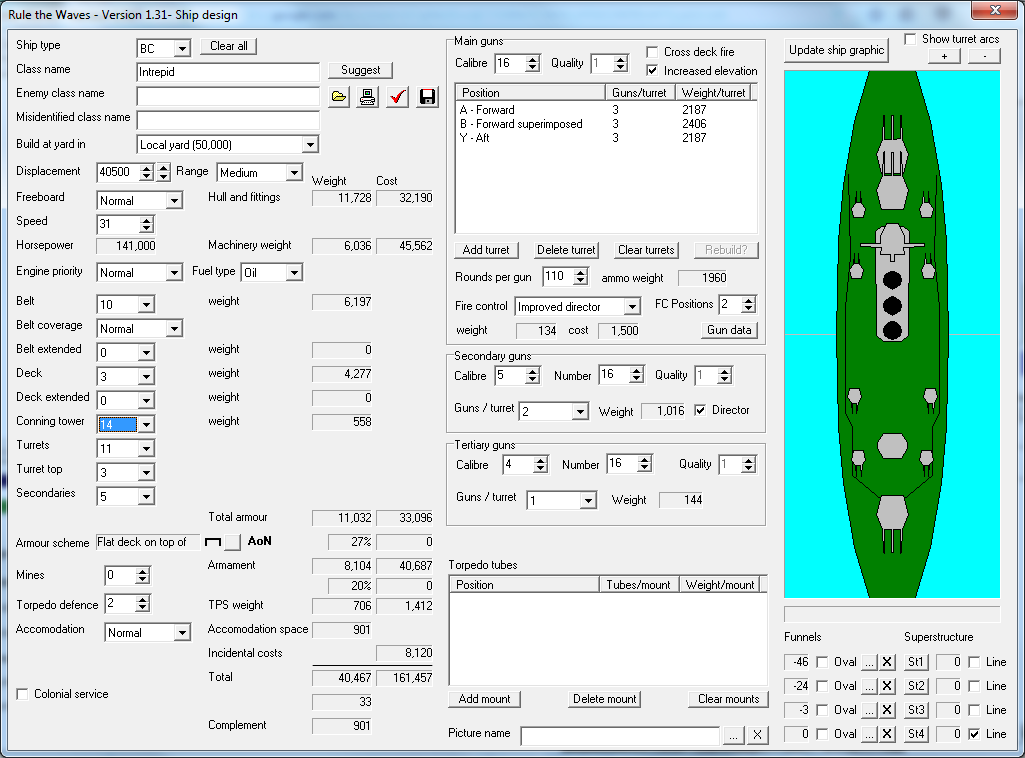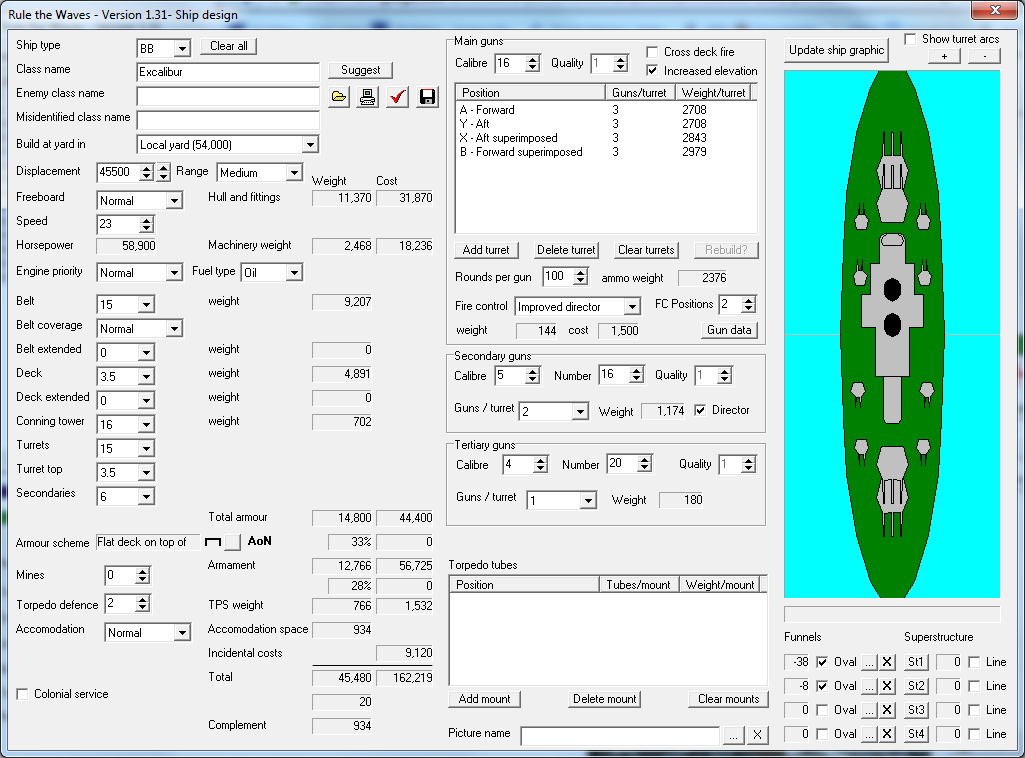January 1914
After the New Year, Kaiser Wilhelm made a state visit to London as part of an effort to reduce the growing tensions between the German Empire and the United Kingdom. He was on best behavior for the visit, clearly restrained from the sort of proclamations and boasts that rattled so many nations.
During the visit, he met with Ambassador Armstrong and discussed the implementation of the Geneva Accords as they stood. For all that Cascadia had protested the German seizure of Sumatra, there had been no point of direct conflict between the nations as of yet. Armstrong agreed with a number of proposals to reduce the tensions between the two states.
Surprisingly, Lakeland accepted the news from Armstrong. While he was still committed to Cascadian power in the Pacific, Lakeland nevertheless knew that the nation needed time for passions to cool. His experience in the prior war had taught him that conflict required solid footing at home, and he needed time to deal with lingering Socialist animosity toward their electoral defeats. Economic prosperity needed to be encouraged to reduce the Socialists and give the Cascadian government more freedom of maneuver.
This was particularly reinforced by a series of strikes in Vancouver. Charleton had instigated the Vancouver-based trade unions and unions to demand a large new wage increase, and then encouraged the strikes that followed the refusals. When the Socialist Party censured him for the act, he responded by breaking from the Socialists and declared he would form a new party dedicated to the "removal of the capitalist economic system". Other discontented Socialists flocked to his banner, promising a new conference and party would be formed at a Congress to be held in Boise in April.
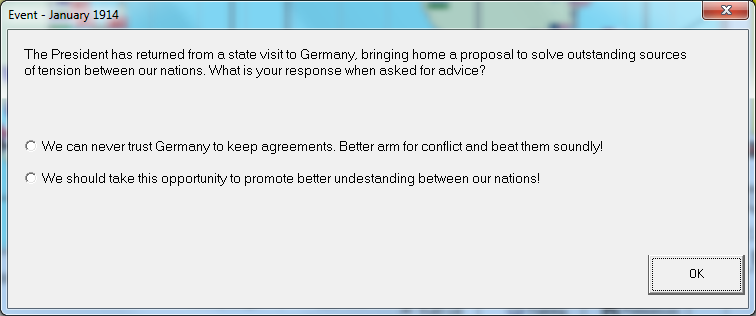
German Tension to 7
The Admiralty was shown new standards of longitudinal framing for future ships that improved design efficiency. Designers also indicated they were ready to install superimposed aft mounts on the new scout cruisers.
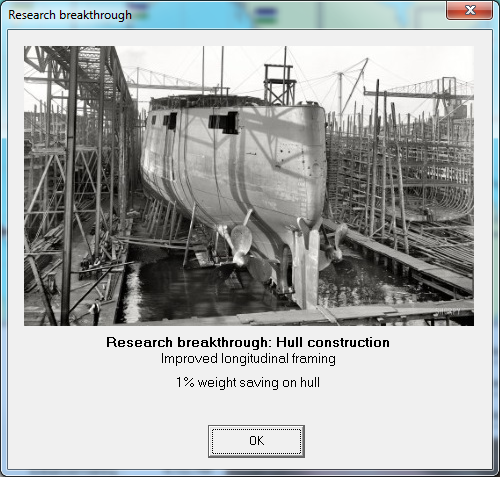
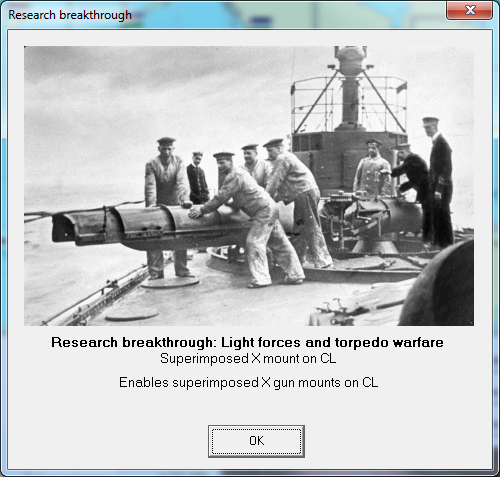
Unrest to 5
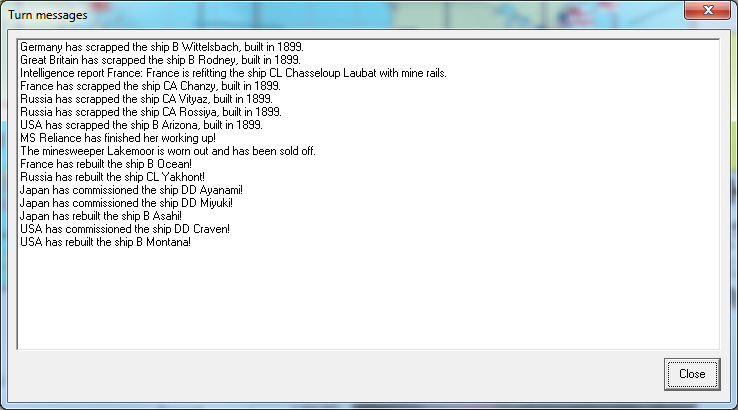 February 1914
February 1914
The
Artemis was commissioned.
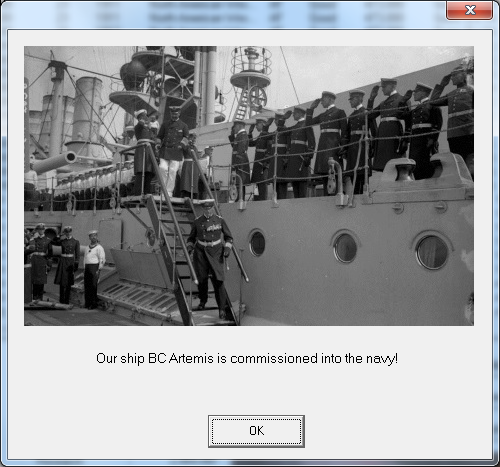
Status of the Fleet:
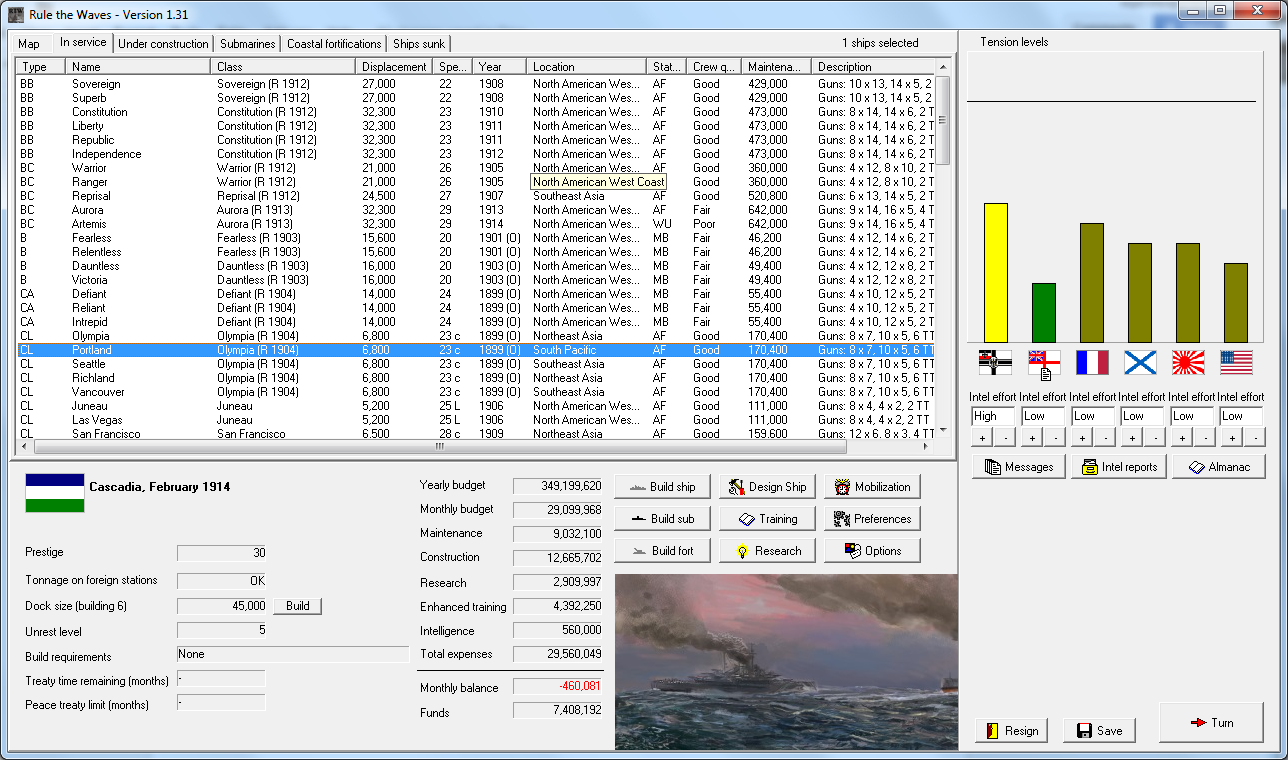
US contractors offered to license new bursting charges to the Naval Ordnance Office. Admiral Garrett okayed the purchase.
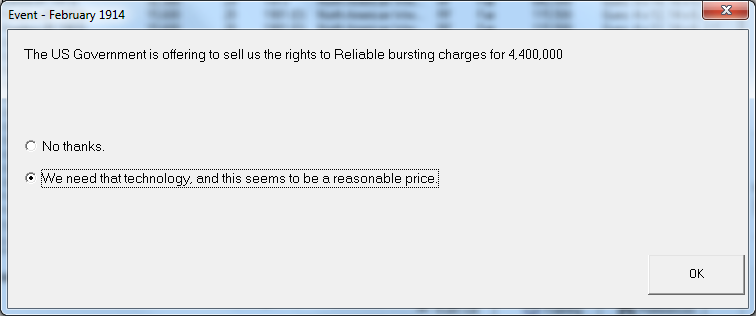
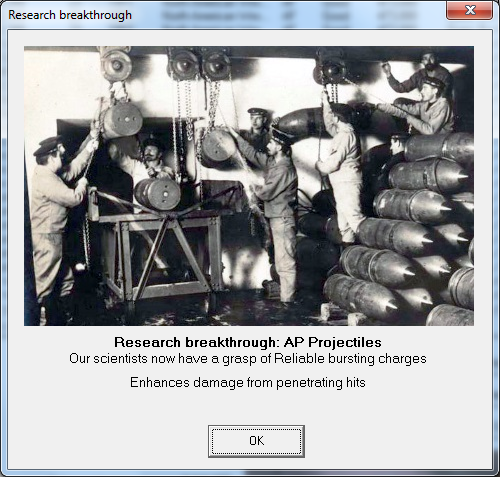 Bremerton Naval Yard
Bremerton Naval Yard
Bremerton, Olympia
17 February 1914
Captain Reginald Etps, commander of the
CRS Sovereign, stood in the drizzle coming down on his ship's deck and looked with melancholy at the sight in the Yard.
A line of protected cruisers were being worked over. They were ships he had known for almost two decades. Particularly the hull nearest him.
The
Anchorage had been his first command. It had been his lifeline, his salvation from disgrace and ruin, and he fondly remembered the raiding protected cruiser even after he was given newer and better commands. He remembered that stormy day at the end of July, 1903, when the
Anchorage had spent ten hours in a gunnery duel with the German cruiser
Hela. He remembered Commander Parker and his lost arm. Chief Drummond, found after the battle still clinging to the bulkhead that the rushing sea had smashed him into before it drowned him. All of those dead, and his wounded ship, yet triumphant.
Just like that day,
Anchorage now stood incomplete. This time, it wasn't from German shells.
The workers were busy stripping useful equipment and electronics from the
Anchorage and her sisters. Once they were done, a last load of coal would be brought aboard so that she could be steamed north to the city she was named for. The people of
Anchorage, through their House representative, had agreed to present funding to turn her into a museum in the city harbor. Her career in two wars had justified her status as a hero ship, and the city wanted to celebrate the vessel that had honored them so.
Depending on what was happening, Etps even had an invitation to attend the transfer ceremony, when the Navy would formally hand the ship over to the city's custody.
It was, at least, a better fate than theothers were getting. None had spoken for them. The
Fairbanks,
San Jose, and
Denver were being towed to scrappers next. They would be dismantled and dismembered and their steel sold off to other suppliers. Such a fate was also to befall the
Seattle and
Esquimalt.
"Admiral on deck!", a bosun cried.
Etps turned and saluted his new superior officer, the commander of the 1st Battle Squadron. Rear Admiral Peter Wallace, formerly commander of the
Superb, returned the salute. His Scots accent was only partly faded in his speech now. "At ease," he insisted. "Captain."
"Admiral. Congratulations."
Wallace nodded. "I'm still not sure why I beat you to an admiral's star, Captain."
"Ambition comes differently to us all," Etps observed. "You deserve this, sir. Don't let anyone tell you otherwise."
"Thank you, Captain." Wallace looked about and then to the ships at the yard. "A shame. It always feels wrong to see good ships cut up like that."
"As opposed to being cut up by enemy shells?", Etps pointed out.
Wallace chuckled at that. "I suppose not." The newly-minted Admiral glanced around the Yard. "Well, Etps, hopefully the Admiralty will get their heads out of their arses and give you the star too."
"We shall see," replied Etps, knowing already that it would never happen. However much Admiral Garrett still saw him as an old comrade, even he could not sway the Navy to permitting an admitted homosexual to wear an Admiral's star. It would be too scandalous.
Perhaps it is time I retire, he pondered, watching Wallace walk across the deck of the
Sovereign toward her forward guns.
Melvin has decent pay. I would have my pension. We could live happily.
He had those thoughts often. More often than usual. He always pushed them away for the same reason: he felt an obligation to his nation.
A few more years, certainly. Then maybe it will be time to move on.
In the Admiralty, another shakeup took place. Vice Admiral Chester D. George became the new Chief of Naval Design and Procurement. Admiral George immediately supported the ordering of a new destroyer class to reflect the aging fleet of
Blakes and
Shermans.
The
Pratchett-class destroyer had been slightly modified from its original proposal, adding new double torped mounts instead of singles and two additional 3" deck guns due to weight savings from improved construction capability in the nation's yards.
Six were ordered from Burleigh & Armstrong and Parker & Sons. The
Pratchett,
La Forge,
Rankin,
Drumknott,
Spangler, and
Samuel S. Vimes.
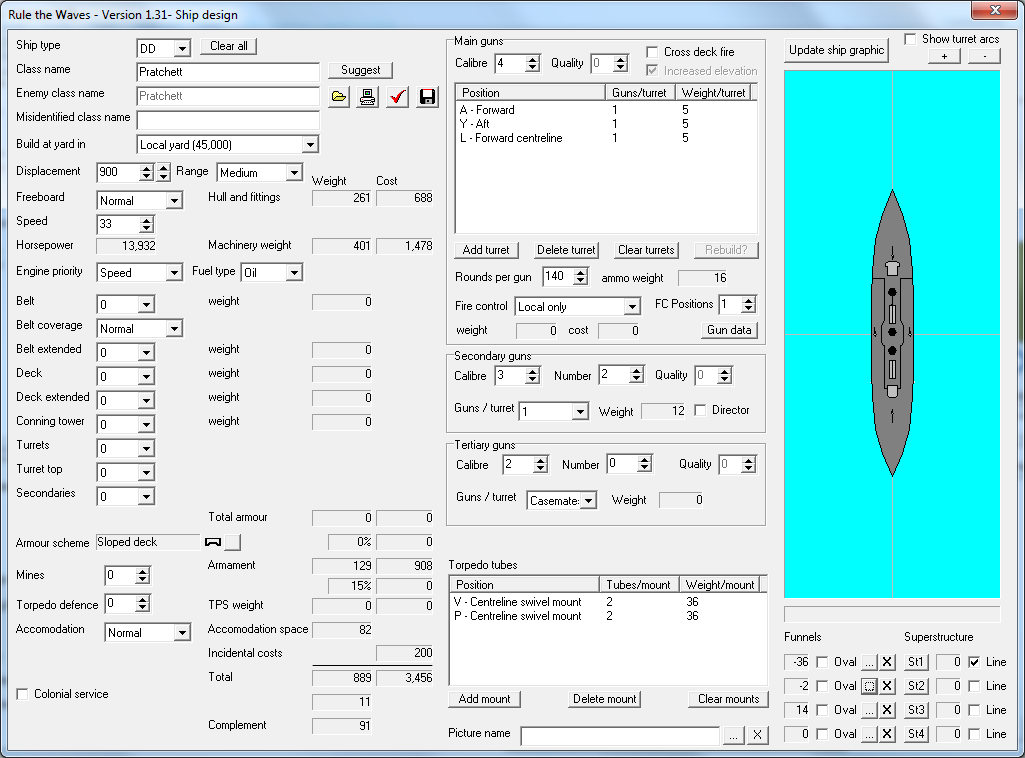
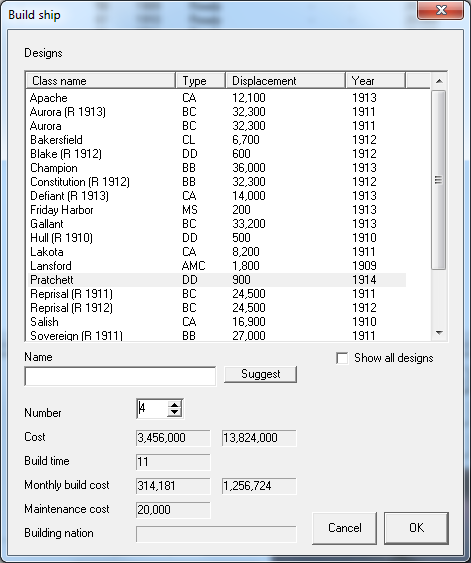
As further cost-saving measures, the pre-sovereign battleships and the armored cruisers were put into mothball status.
The cruiser
Bakersfield was rotated to service with Samoa Squadron.
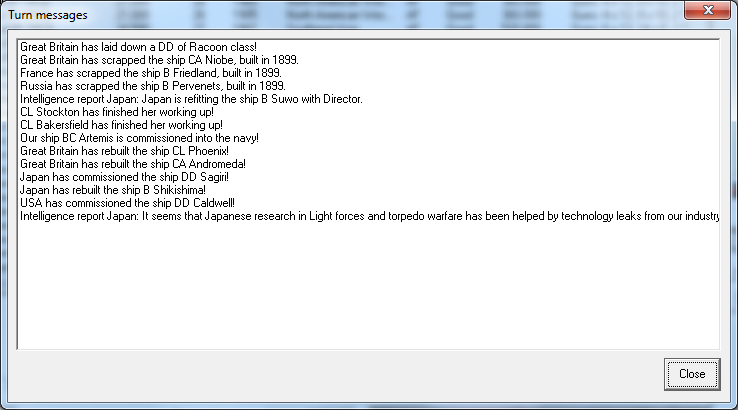 March 1914
March 1914
Naval Ordnance announced the perfection of new high explosive filler for HE shells.
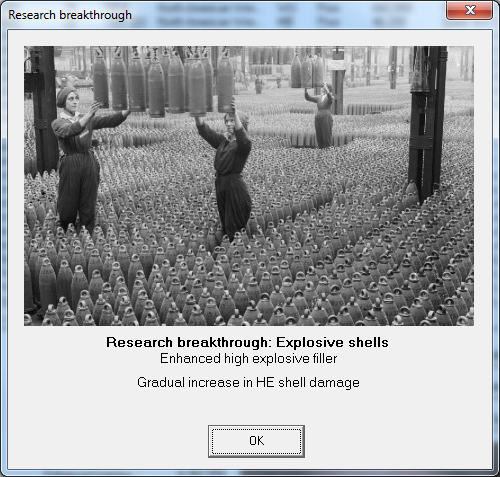
The
Vancouver was scrapped.
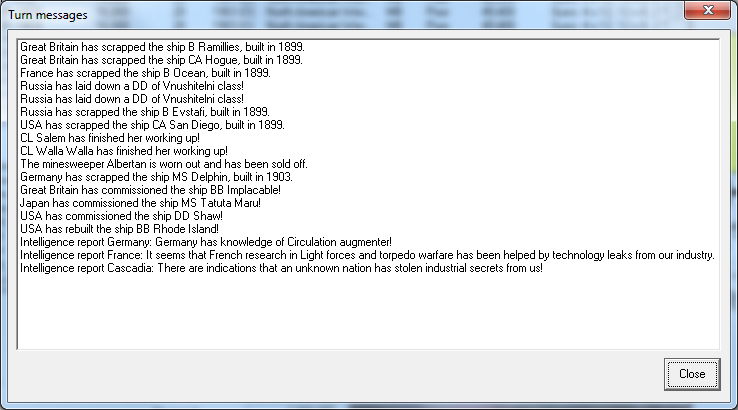 The Garrett House
The Garrett House
West Portland, Oregon
17 March 1914
Admiral Garrett couldn't hide his worry.
Rachel was in the bed. A cough came every few minutes, sometimes minor, sometimes violent. Her skin was moist and clammy. She looked miserable. And
tired.
He wished he could say he was better. He was sitting upright at least, clasping her hand in his, ignoring the wrinkles starting to cover both. But his own lungs burned with pain. Every breath was more labored than it should have been. And his joints were starting to ache every time he walked.
"I'm here, dear," he said to her, his voice low.
"I know," she rasped. Another small cough. "Sophie?"
"Visiting the National University Womens' College."
A weak smile came to Rachel's face. "Good," she said. "My girl has a future with that."
"Yes indeed."
"And Gabby?"
"With friends. The daughter of Senator Talaverda."
"Good for her."
"You'll be better soon," the Admiral insisted. "I took a few days too. And then you'll be up and…"
Rachel looked at him sadly. "Yes. But we both know I am weakening."
"It is simple age."
"No. Not just age. My body is not as robust as it once was." Rachel took his hand into hers and squeezed gently.
He shook his head. "No. You will live longer than I, my dear."
"I do not wish it." Rachel closed her eyes and took a ragged breath. "I miss Mama and Papa. And I live in such fear for Raffie. It has made me tired."
"I understand."
"And you… the stress of the work has worn on you, love." She reached up and touched his cheek. "The lines of your eyes. The loss of your smile. The pain I see in you whenever you leave for the Admiralty. I worry so much for you."
There was no argument there. He could feel it every morning. The pain in his limbs, the stiffness, and the stress of dealing with legislators and the Cabinet and that damned obstinate Lakeland as President, the state affairs and banquets he was dragged to whenever a state visit came - Wilson was due to visit in two months, the first American President to come to Cascadia since Garfield visited during the North American War - and the Navy League dinners and speeches…
I have been doing this job for eight years. I've been in the Admiralty for fourteen. Perhaps… perhaps it is time…
"Everything will be fine," he insisted to Rachel. "I promise you."
She nodded. And she was too weak to say more.
April 1914
The new medium-range submersible
Adder was commissioned.
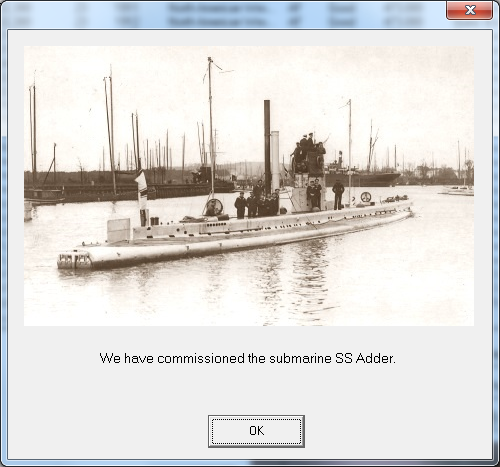
Naval Engineering reported to Admiral George's office that circulation augmentors were now available for warship machinery.

The Admiralty ordered three more new medium range submersibles from various builders in the country.
Mako,
Hammerhead, and
Barracuda were the names assigned.
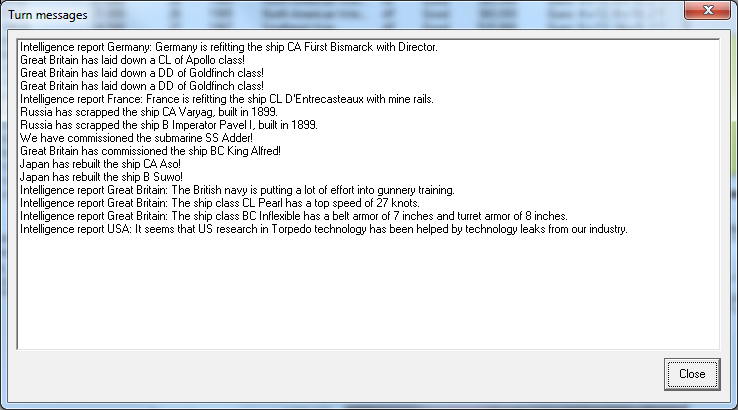 May 1914
May 1914
The enhanced training regiment ordered the previous year had clearly succeeded in raising the effectiveness level of the fleet.
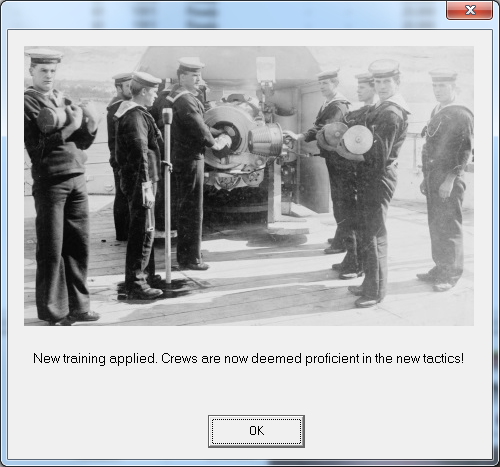
The submersibles
Nautilus and
Narwhal were commissioned.
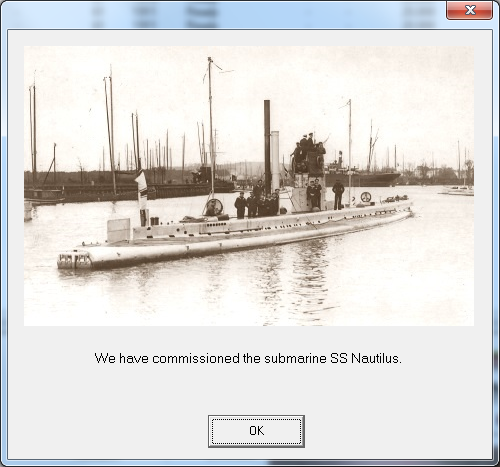
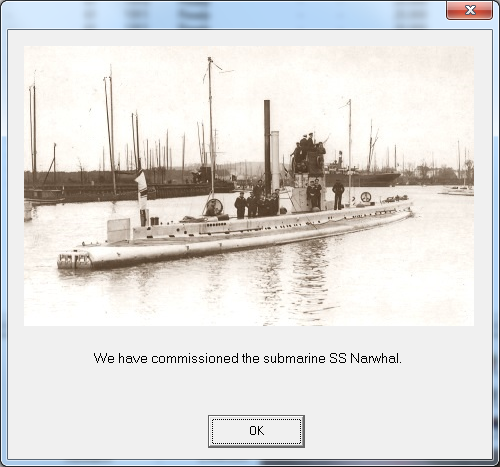
US contractors offered licensing on new face hardening techniques for naval armor. The Admiralty approved the purchase.
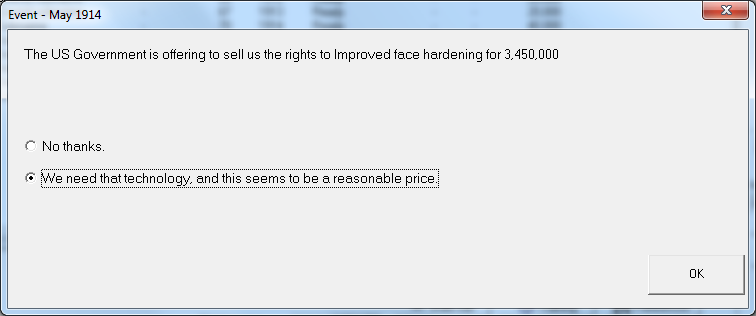
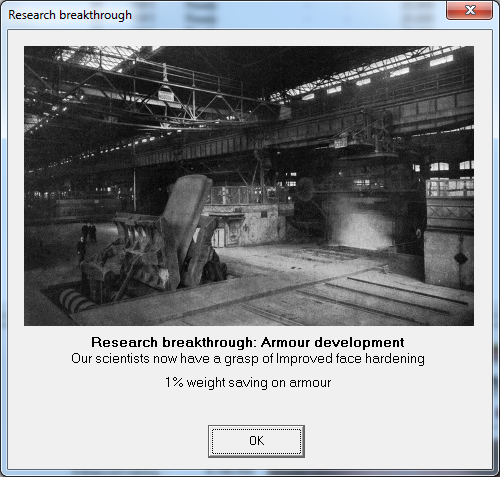
Cascadian gun manufacturers reported successes with gun models with the aid of British designers.
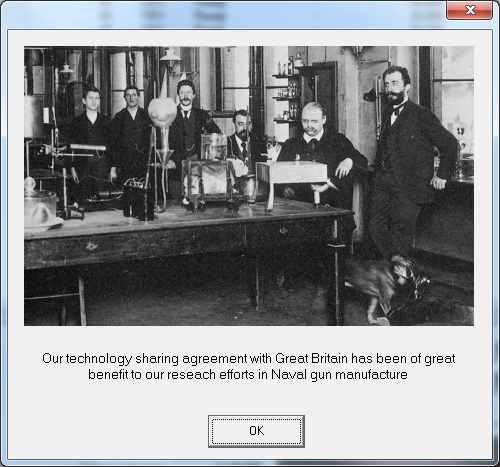
The protected cruisers
Olympia and
Richland were scrapped.
The
Blake-class destroyers are brought in for complex refits to be made into coastal patrol and ASW ships. The ships' machinery is completely replaced, with new engines for 32 knot design speed and oil-fired boilers.
The
Blake,
Pepys,
Rodriguez, and
Bainbridge are the first called into the yards for refit.
The alliance with Great Britain had resulted, among other things, in increased trade with the South Pacific dominions. The burgeoning populations of Australia and New Zealand provide a ready market for Cascadian goods, helping to spur the economy and to provide more jobs.
The mood in the country from the increased economic prosperity and the maintenance of the Democrat social reforms help settle the nation's civil discourse, reducing national unrest.
Unrest down to 4
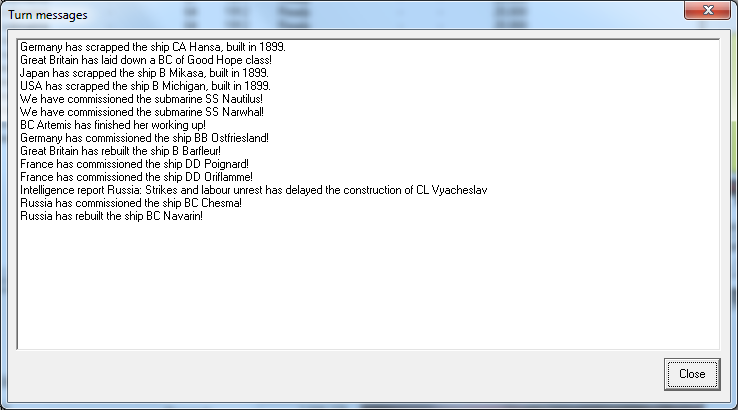 June 1914
June 1914
The British Government offered to sell plans for gyro stabilizers for use in fire control systems. The Admiralty approved the purchase.
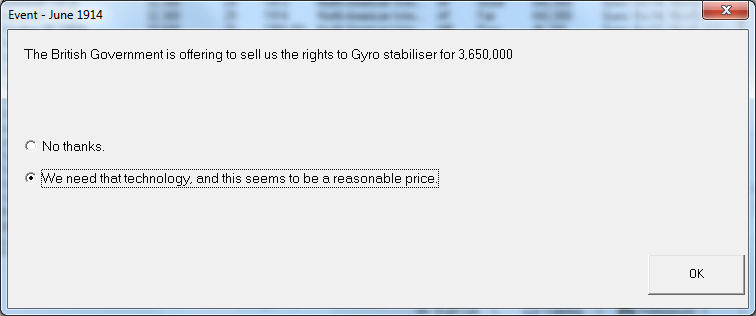
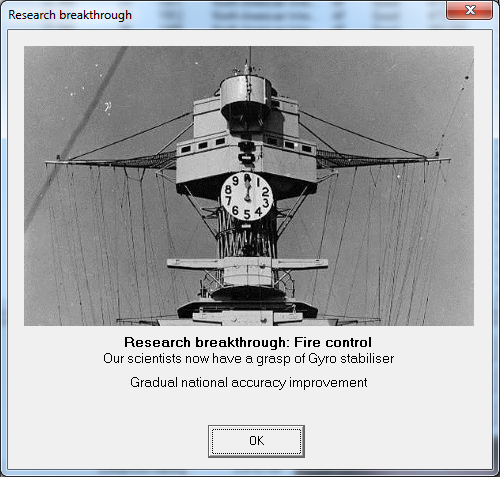
Meanwhile research into improved fire control systems gained an unexpected boon.
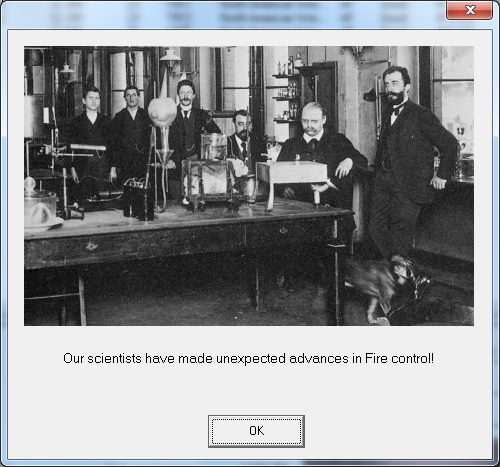
With relations with Germany relaxed, Admiral Garrett orders an end to the enhanced training regimen, saving funds for building new cruisers.

The remaining
Blake-class destroyers enter the yards for the complete engine refits.
All Blake-class DDs being rebuilt
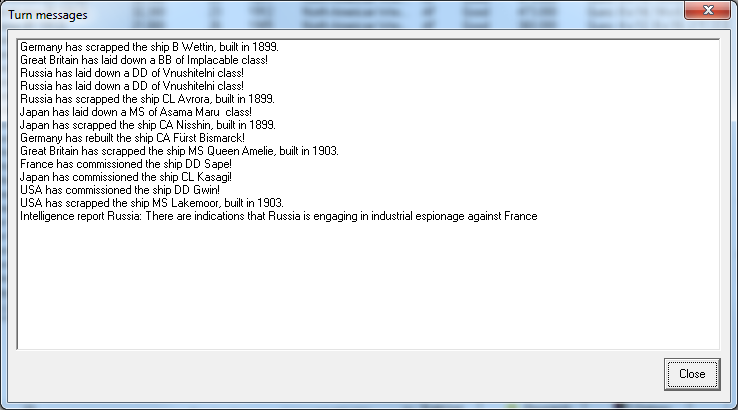
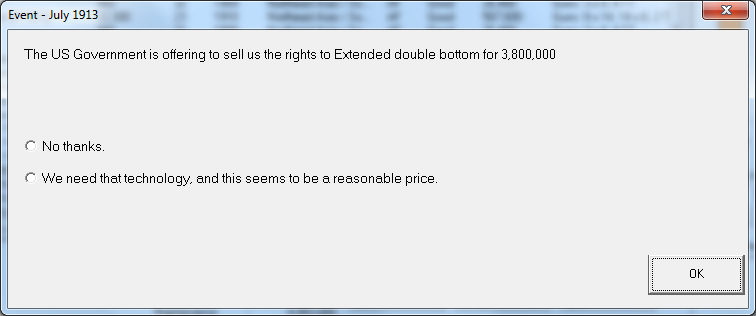
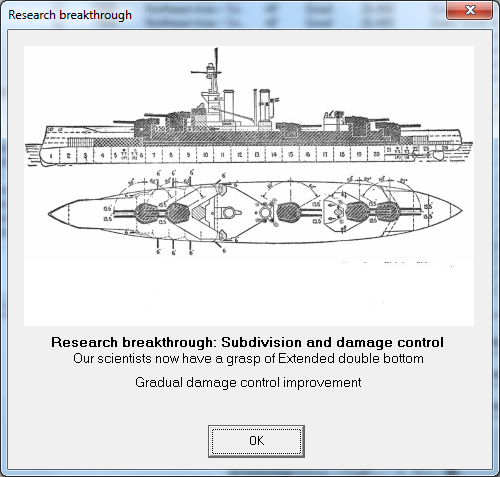
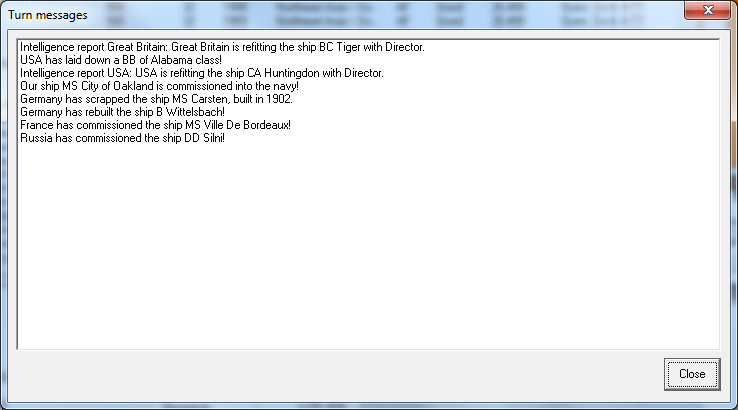
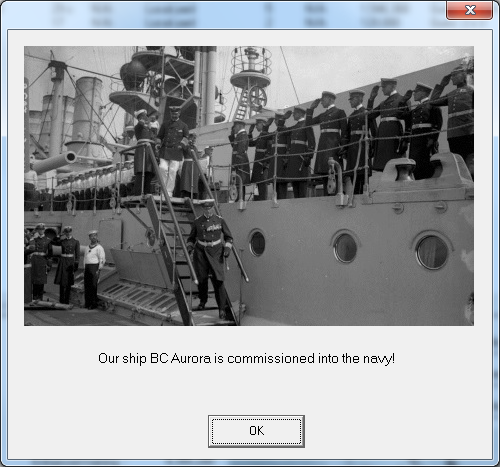
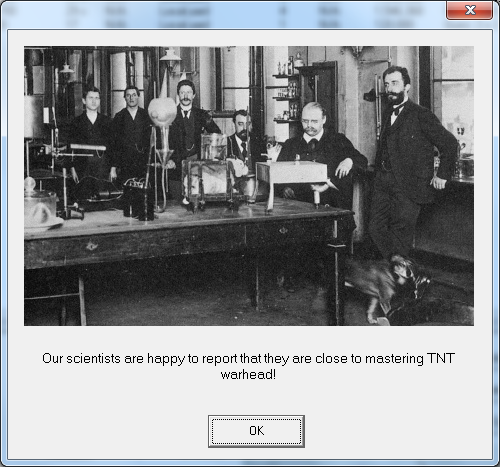
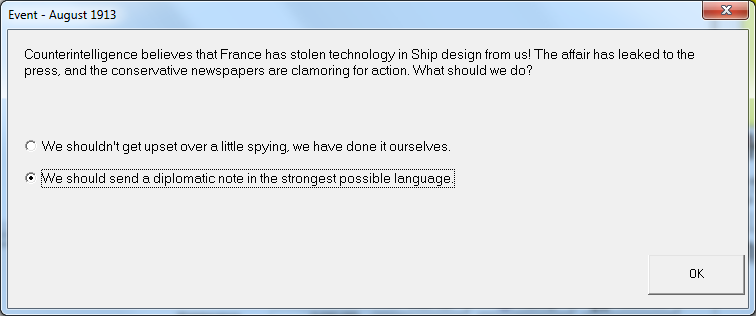
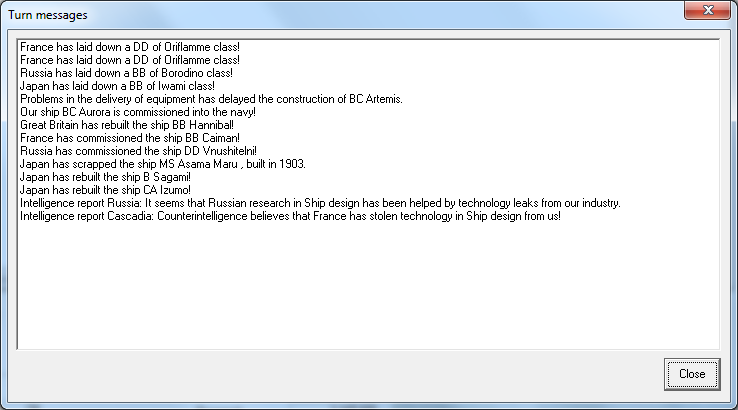


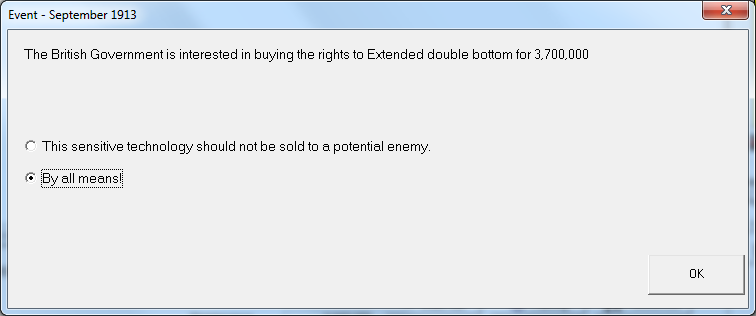
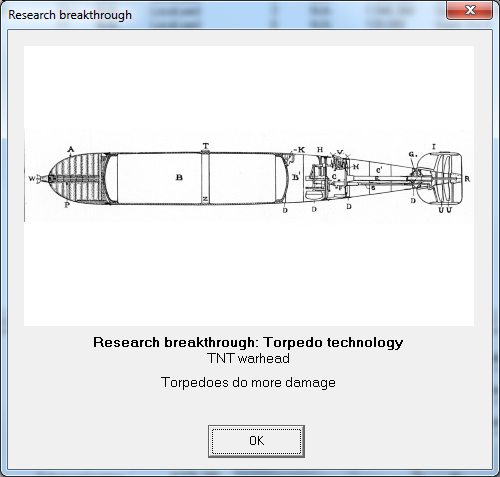
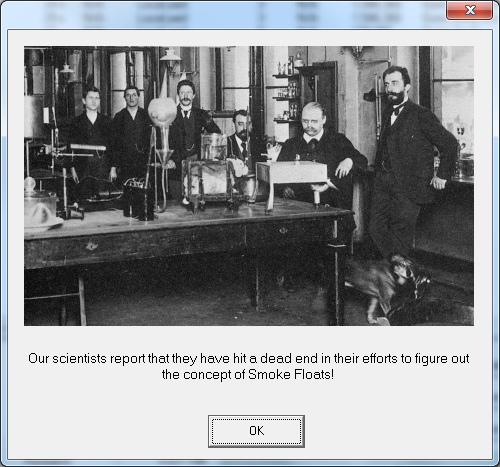
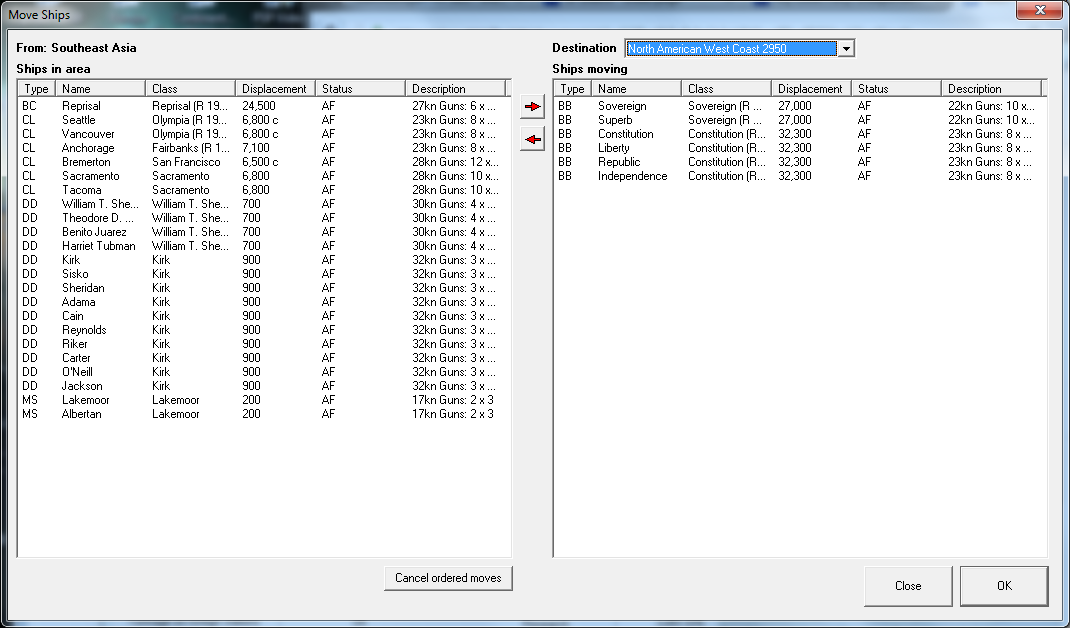
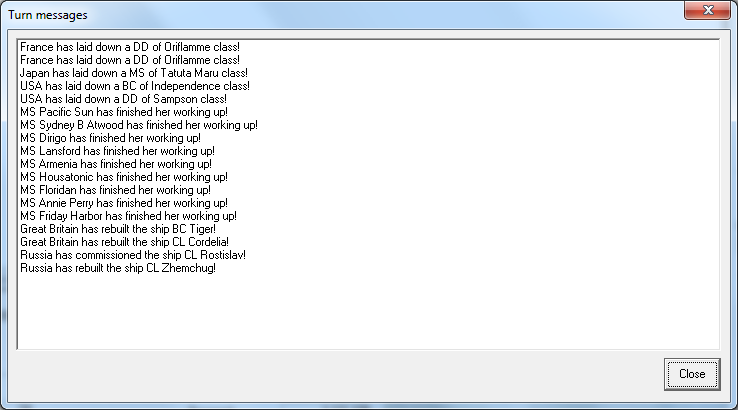
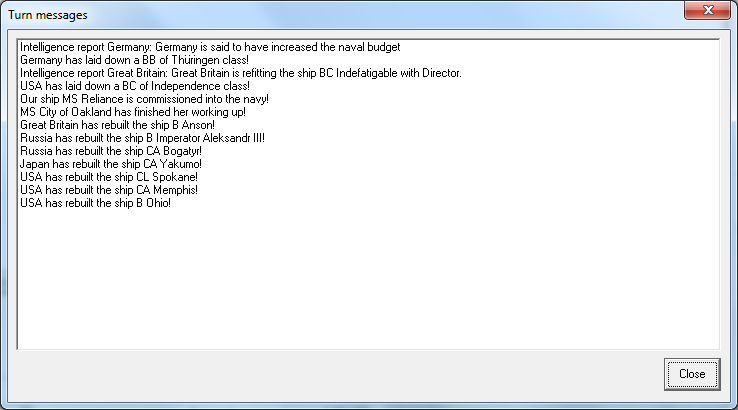
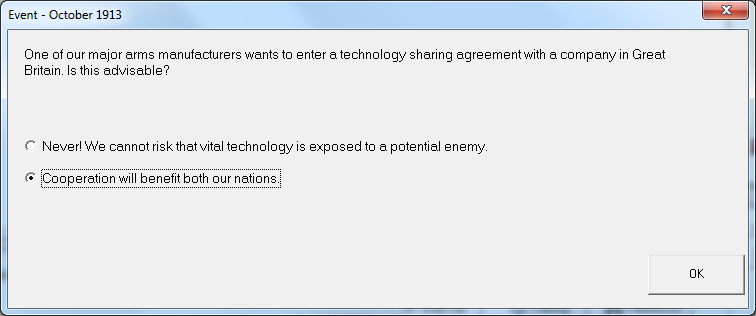
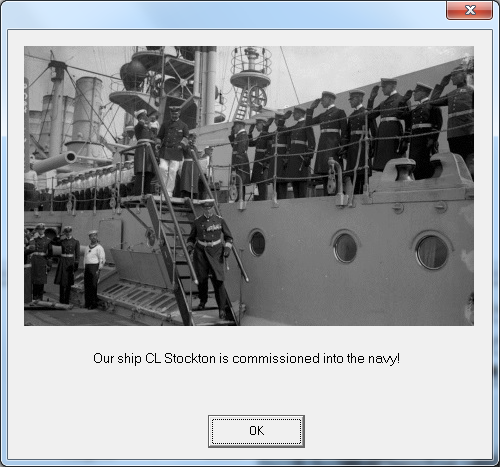
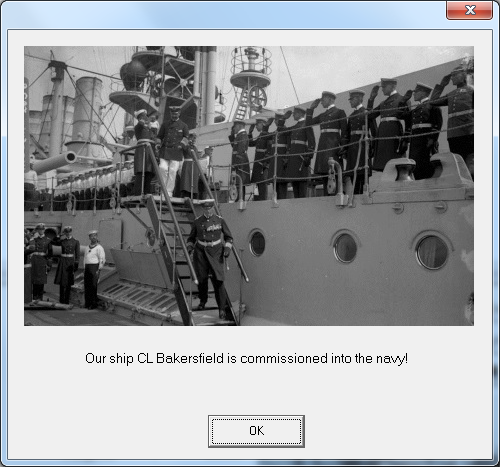

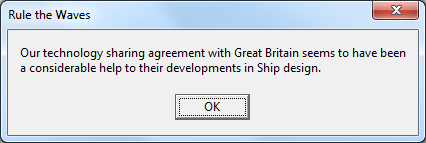
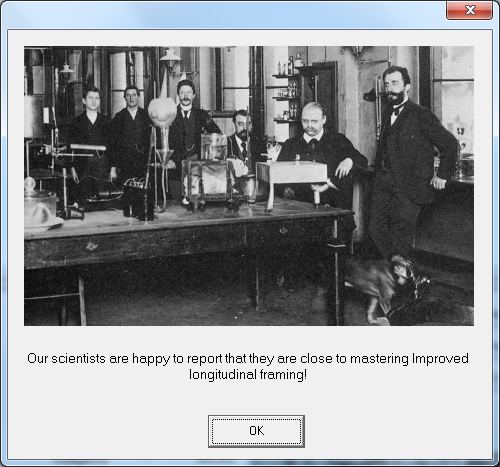

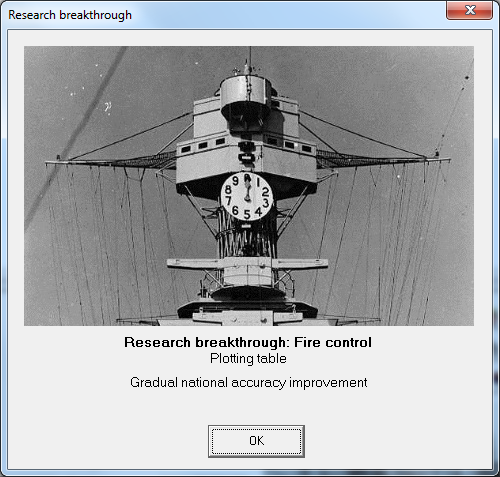
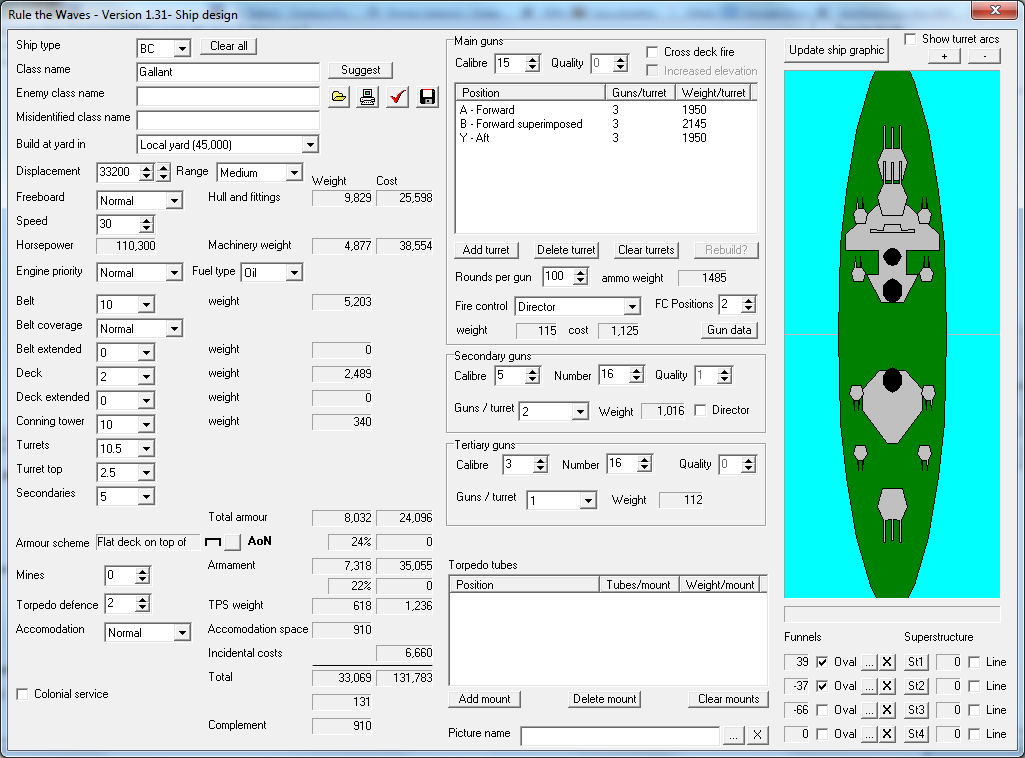
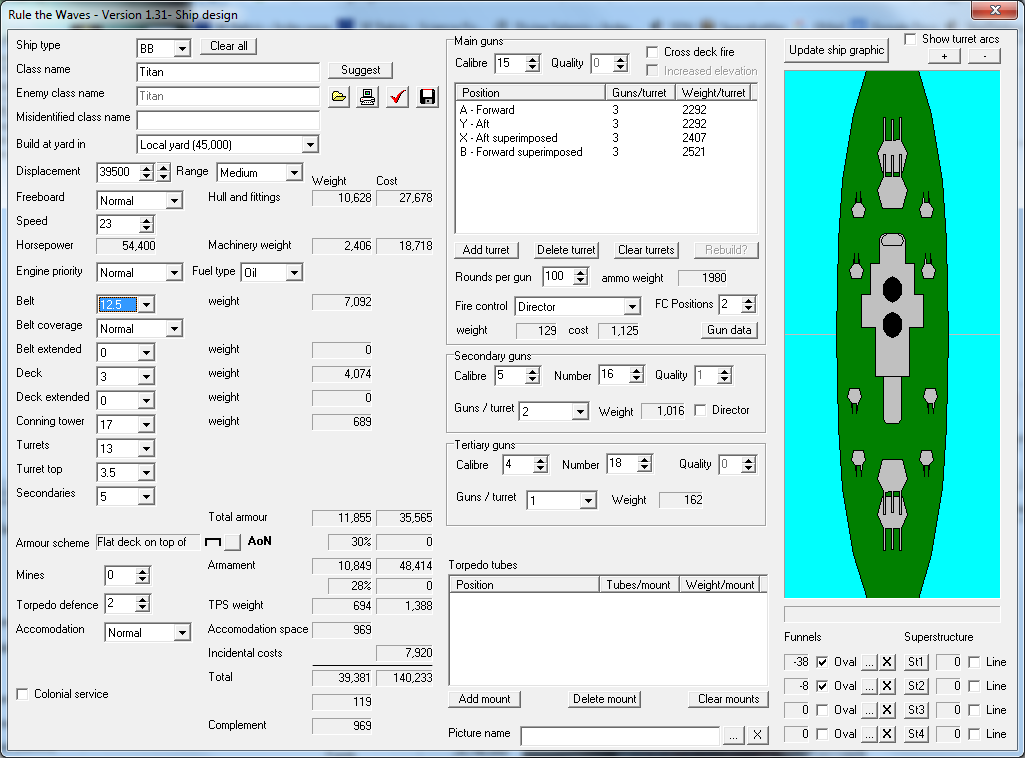
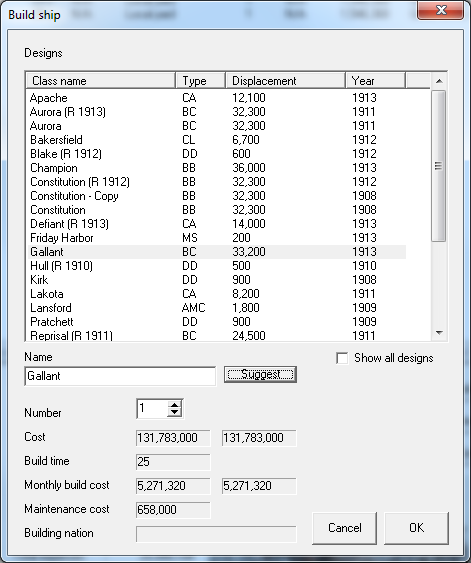
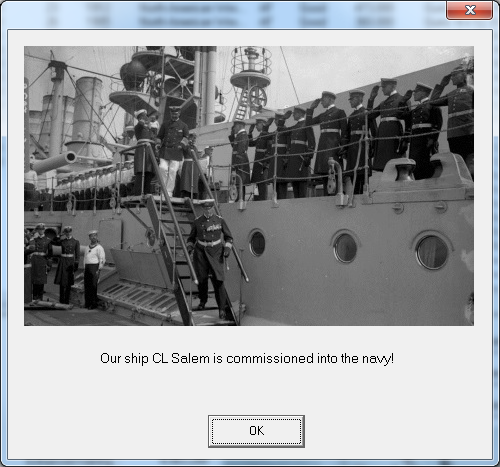
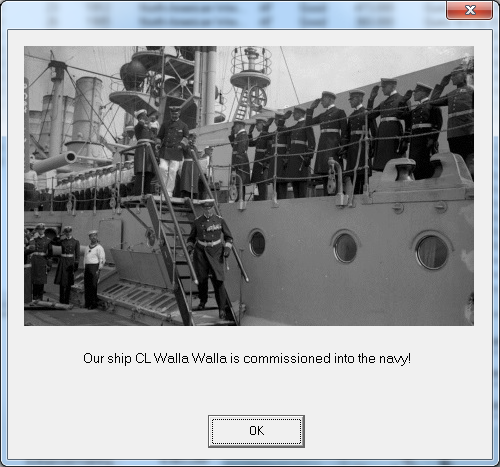
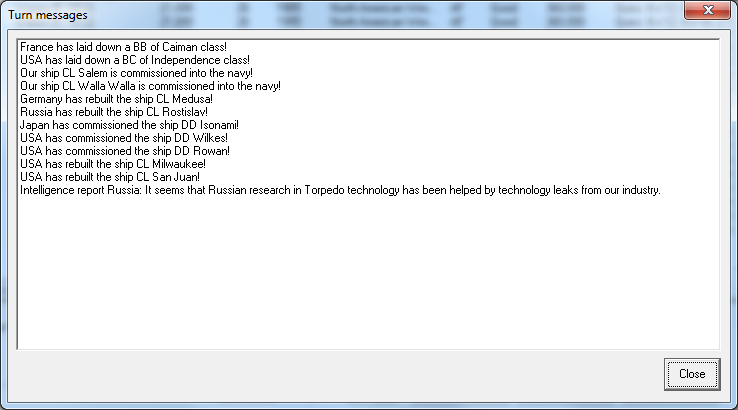
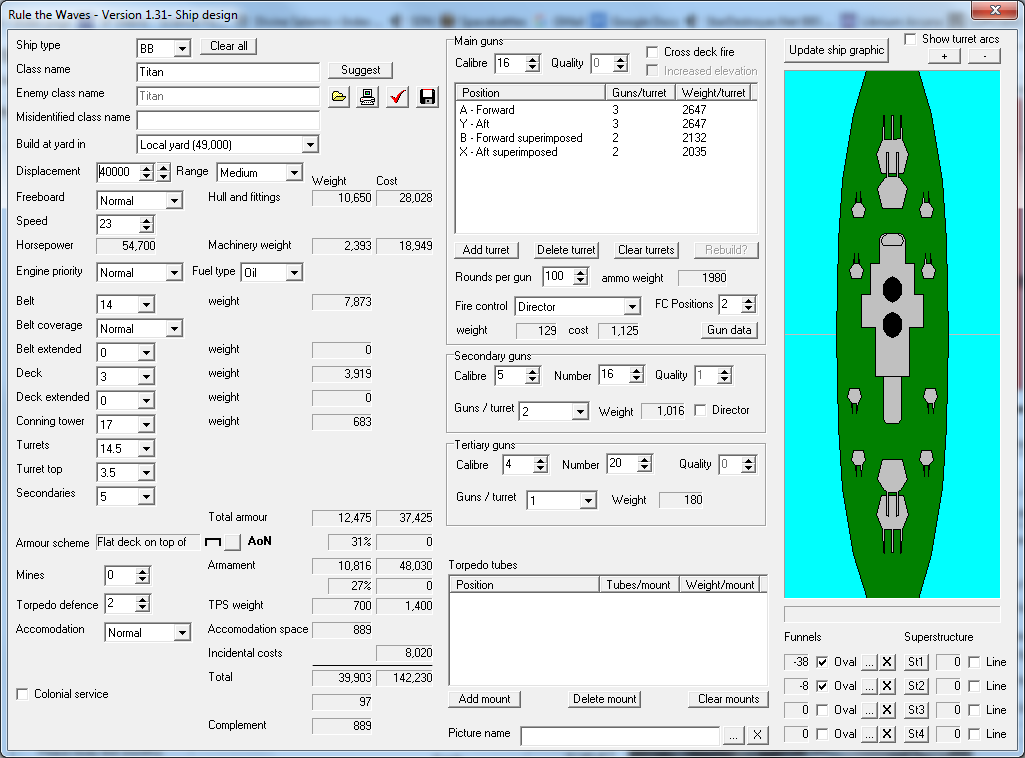
I hope I survive!
